
The Southern Ocean connects the planet —Polar Pride reminds us that inclusive science is stronger science.
#PolarPride #ScienceIsForEveryone #LGBTQinSTEM

The Southern Ocean connects the planet —Polar Pride reminds us that inclusive science is stronger science.
#PolarPride #ScienceIsForEveryone #LGBTQinSTEM
Visibility and diversity are so important 🏳️🌈✨
I’m proud to be in a field that celebrates the LGBTQ+ community 🌈🧪🐋 #LGBTQinSTEM #DiversityInPolarScience


Visibility and diversity are so important 🏳️🌈✨
I’m proud to be in a field that celebrates the LGBTQ+ community 🌈🧪🐋 #LGBTQinSTEM #DiversityInPolarScience
This year I'd like to draw attention to @500qs.bsky.social - an awesome campaign for making LGBTQ+ people in STEM more visible!
Coincidentally, happy to have played a part making Arctic Pride happen here in Tromsø last week 🏳️🌈 #polarpride #LGBTQinSTEM #DiversityInPolarScience

This year I'd like to draw attention to @500qs.bsky.social - an awesome campaign for making LGBTQ+ people in STEM more visible!
Coincidentally, happy to have played a part making Arctic Pride happen here in Tromsø last week 🏳️🌈 #polarpride #LGBTQinSTEM #DiversityInPolarScience





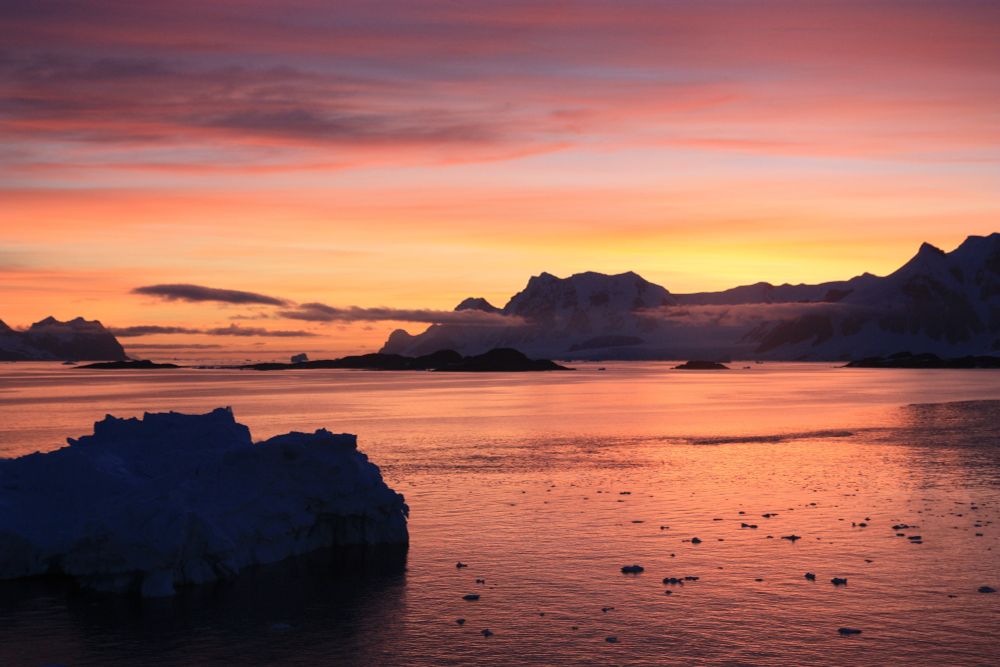
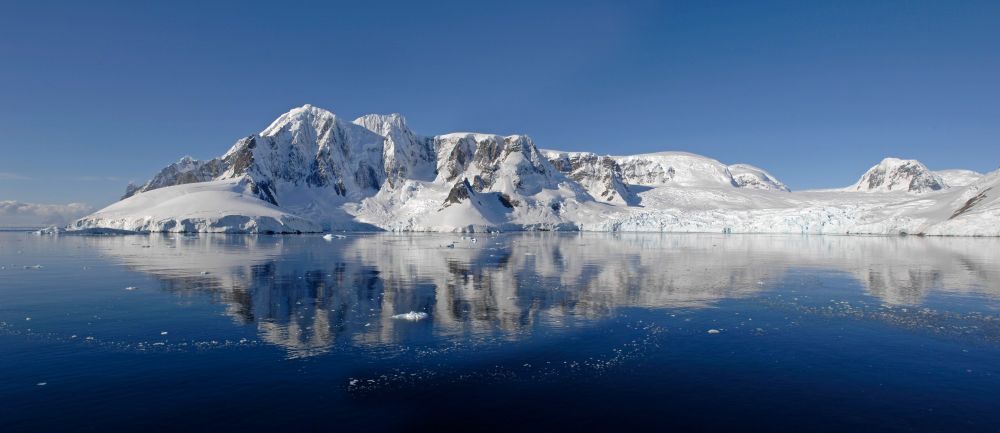


Graphic: Hamish Pritchard et al
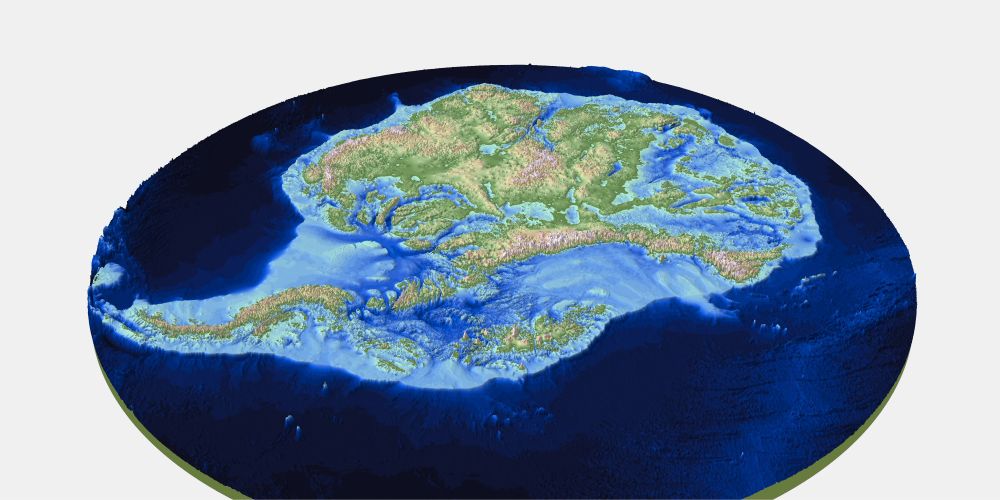
Graphic: Hamish Pritchard et al
🧊 Get some ice forming on the top of your water
🌊 Bump bits of ice together with small waves
♻️ This rounds their edges as they freeze!
🥞 Grow the disc edges with trapped frozen foam
These pancakes will be up to 3m wide + 10m thick.
Bon Appétit 👩🍳

🧊 Get some ice forming on the top of your water
🌊 Bump bits of ice together with small waves
♻️ This rounds their edges as they freeze!
🥞 Grow the disc edges with trapped frozen foam
These pancakes will be up to 3m wide + 10m thick.
Bon Appétit 👩🍳


This was 1,420,000 km² below the 1981-2010 average. December ice extent is decreasing at about 3.43% per decade. Data: nsidc.org/data/seaice_... 🌊
This was 1,420,000 km² below the 1981-2010 average. December ice extent is decreasing at about 3.43% per decade. Data: nsidc.org/data/seaice_... 🌊
• about 820,000 km² below the 2010s mean
• about 1,300,000 km² below the 2000s mean
• about 1,880,000 km² below the 1990s mean
• about 2,340,000 km² below the 1980s mean
Plots zacklabe.com/arctic-sea-i...

• about 820,000 km² below the 2010s mean
• about 1,300,000 km² below the 2000s mean
• about 1,880,000 km² below the 1990s mean
• about 2,340,000 km² below the 1980s mean
Plots zacklabe.com/arctic-sea-i...
This was 1,710,000 km² below the 1981-2010 average. Data from NSIDC: nsidc.org/data/seaice_...
This was 1,710,000 km² below the 1981-2010 average. Data from NSIDC: nsidc.org/data/seaice_...



November, 2024, came in at the second warmest in recorded history, at 1.62°C above the pre-industrial baseline.
Starting in June, 2023, there have now been 18 consecutive months above the pre-2023 record high, likely the hottest string of 18 months in the last 120,000+ years.
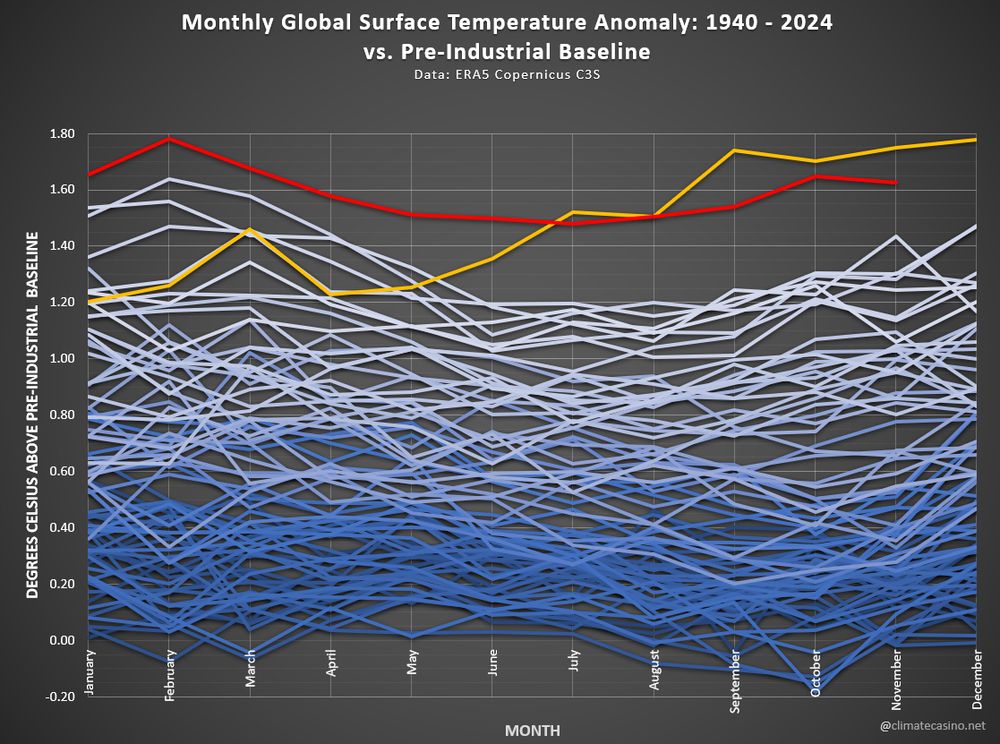
November, 2024, came in at the second warmest in recorded history, at 1.62°C above the pre-industrial baseline.
Starting in June, 2023, there have now been 18 consecutive months above the pre-2023 record high, likely the hottest string of 18 months in the last 120,000+ years.
Animation: NASA SVS
Animation: NASA SVS
Climate Pulse makes it easy for anyone to explore daily, monthly & yearly global surface air & sea surface temperature data.
Our guide: climate.copernicus.eu/climate-puls...
Climate Pulse makes it easy for anyone to explore daily, monthly & yearly global surface air & sea surface temperature data.
Our guide: climate.copernicus.eu/climate-puls...
Last month's global sea-ice volume was a record low for the month of October. This continues the stretch of new records

Last month's global sea-ice volume was a record low for the month of October. This continues the stretch of new records
But the very hottest days have warmed 4x faster than the global average, especially in south-east England.
Global warming is not "just" 1°C or 2°C. The effects of climate change are non-linear, especially for extremes.
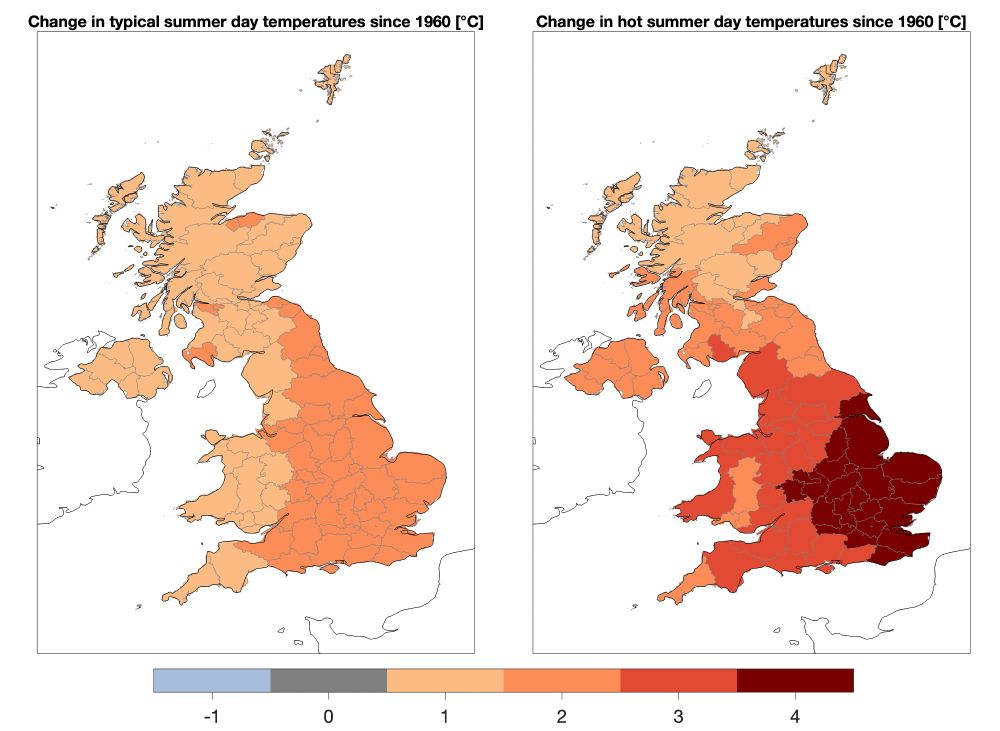
But the very hottest days have warmed 4x faster than the global average, especially in south-east England.
Global warming is not "just" 1°C or 2°C. The effects of climate change are non-linear, especially for extremes.
Iceworld is our podcast series about the amazing people who live and work in Antarctica - from polar scientists to plumbers.
🎧 You can find it on all good podcast platforms!
@bas.ac.uk
audioboom.com/posts/846937...

Iceworld is our podcast series about the amazing people who live and work in Antarctica - from polar scientists to plumbers.
🎧 You can find it on all good podcast platforms!


